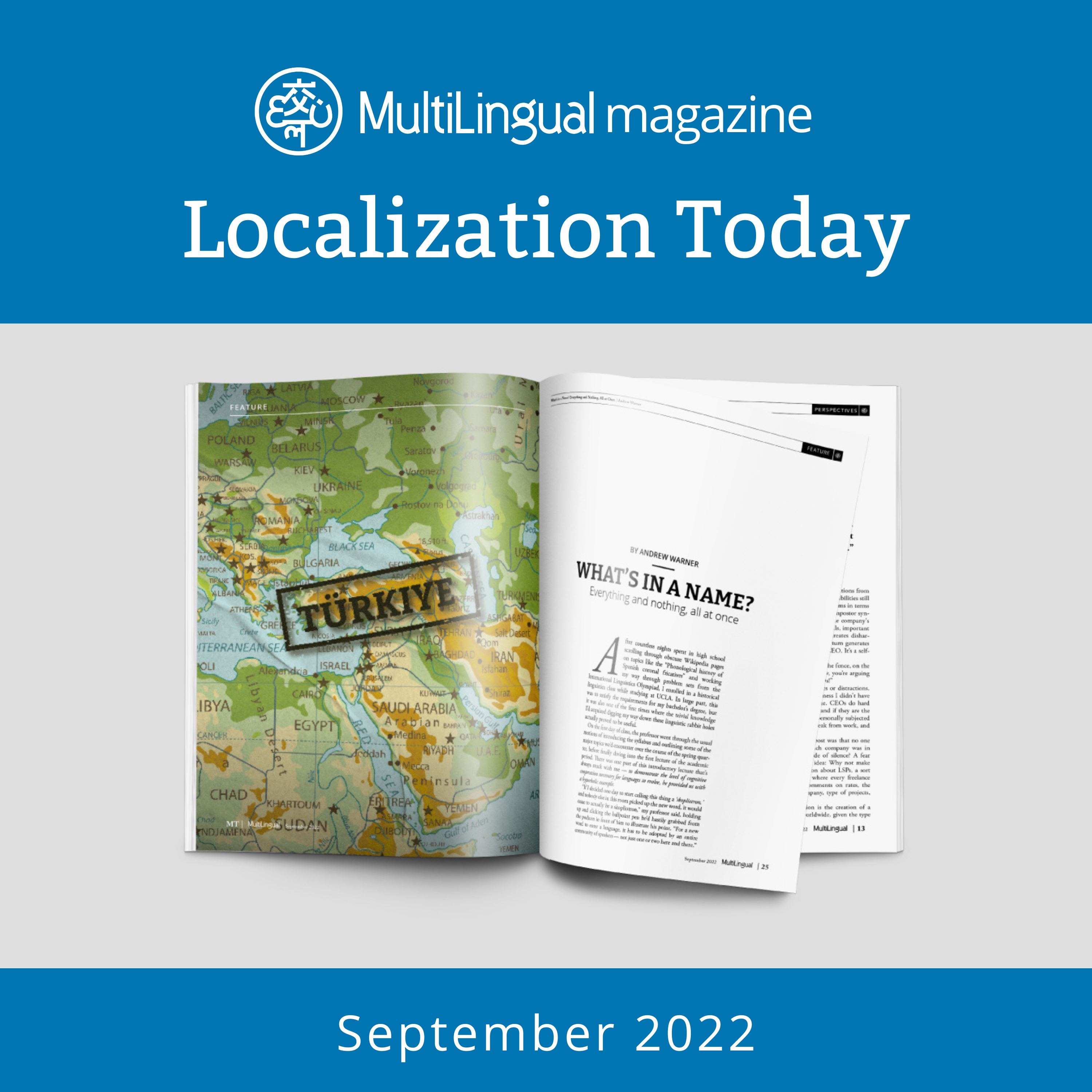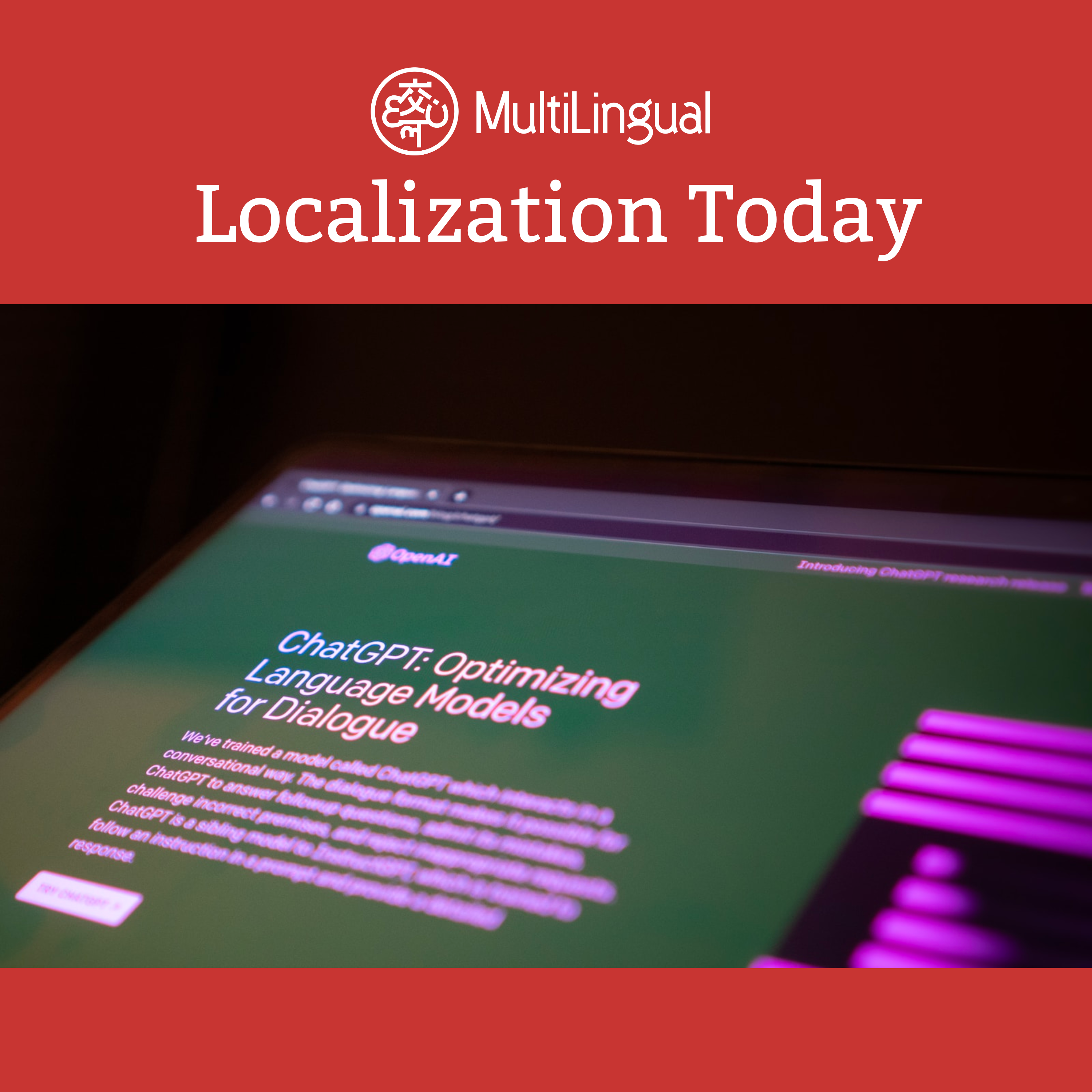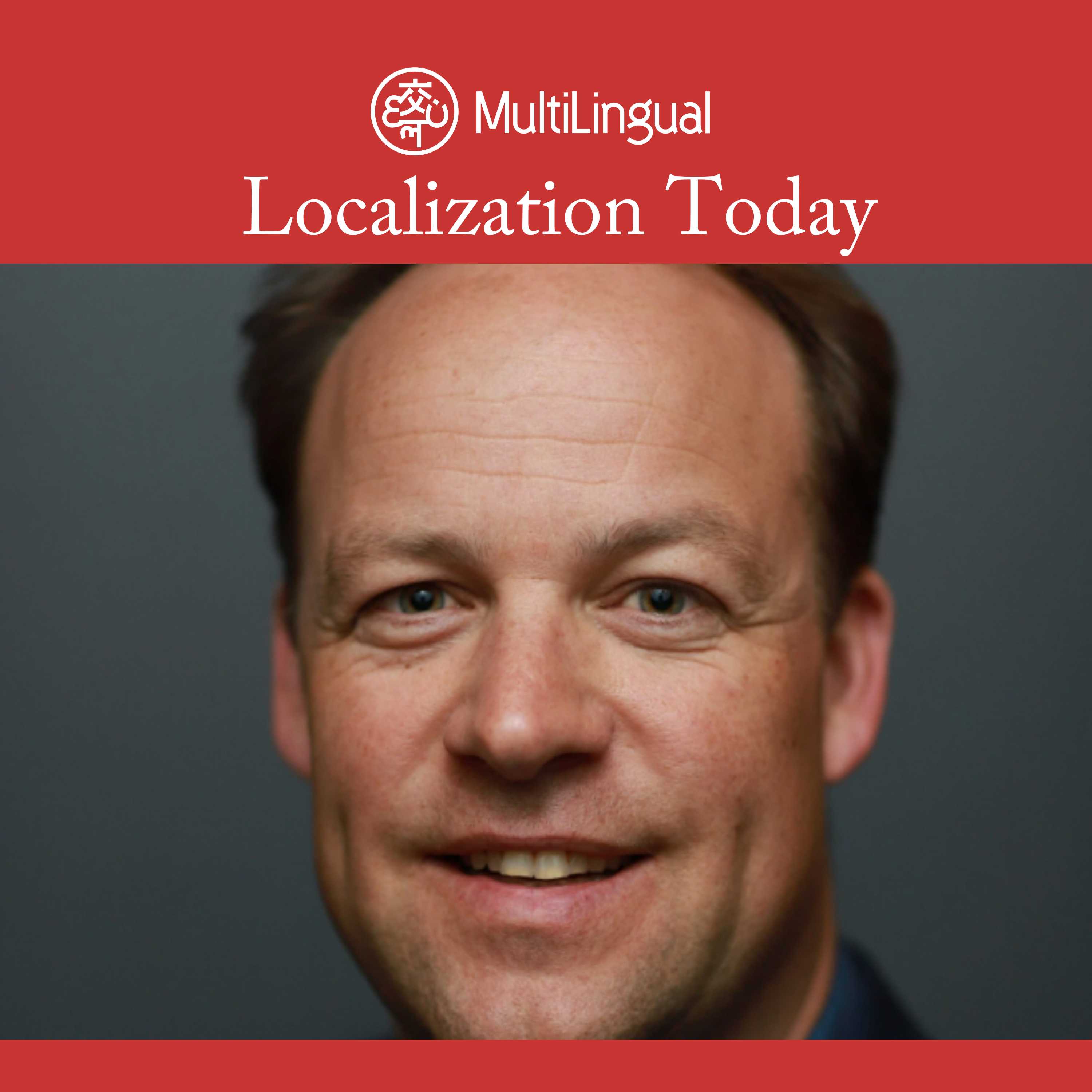Episode Transcript
[00:00:00] Speaker A: Think carefully. Then do it. The Globe trotting journey of translated nine interview by Cameron the call of the ocean has stirred human hearts since before we developed the language to express it. All the more fitting, then, that language led a few brave humans to answer that call. In 2023, italian language service provider translated embarked on a journey unusual for a localization company, or any company for that matter. Boarding their faithful sailing vessel, the translated nine, they cast off in the Ocean Globe Race 2023, competing against more than a dozen other crews to circumnavigate the globe using only a sextant and star gazing to guide them. No global positioning system, GPS, or electronic maps allowed. The team of 18 included representatives from Italy, France, the United Kingdom, UK, Turkey, Belgium, Germany, and the United States. It was an adventure with its fair share of risk how many adventure seekers throughout history have lost their lives to the sea? And indeed, the translated nine crew braved their share of dangers and setbacks, even as their competitive spirit urged them to throw Karshan to the wind. Thanks to a combination of daring do and sensible Karshan, the team finished their race not only safely, but also with unforgettable experiences and a renewed sense of wonder. The race unfolded over four legs between September 10, 2023, and May 3, 2024. Kicking the voyage off in Southampton, UK, translated nine sailed across the Atlantic to Cape Town, South Africa. Logging 6650 miles altogether, they charted another 6650 miles, sailing from the southern tip of Africa to Auckland, New Zealand. Ringing in the new year, the translated nine crew sailed another 8370 miles across the Pacific to punter della state, Uruguay. Then it was a final 5430 miles back to Southampton, UK, with about eight months spent at sea or in port cities. Ocean Globe Race 2023 gave the translated nine crew no shortage of opportunities for soul searching. There were moments of pure exhilaration as the spirit of adventure took hold. Likewise, setbacks and homesickness yielded episodes when participants questioned the entire endeavor. But by the time translated nine sailed back to the UK in spring 2024, no one questioned the value of the feat theyd just accomplished. Multilingual spoke to translated nine co skipper and team manager, as well as translated co founder and CEO Marco trollmed Betty about the experience of circumnavigating the globe and why anyone considering a similar expedition should think very carefully and then do it. Embarking on a company sponsored sailing race around the world isn't exactly an endeavor every business leader aspires to. What inspired you to set sail on this adventure?
[00:03:02] Speaker B: Yes, it's not typical. We feel profoundly different in how we view the world and in our courage to face great challenges, we approach the complex projects that the market and our clients propose with the same attitude that guides us in taking on challenges that always seem a bit bigger than whats possible. We do it to cultivate a culture thats part of who we are. This allows us to keep the bar high for whats possible in everything else we do what inspired us. First, a friend said it was impossible to sail around the world without losing money. Second, the story of Ramon Kahlin, a mexican entrepreneur who, without ever having been a navigator, participated in and dramatically and unexpectedly won the first round the world race in 1973. That year, the UK organized the first head to head sailing race around the world, inviting x bot crews to compete against each other. The Whitbread round of the world yacht race pushed the sport to its limits. The British Royal Navy bought six yachts to train 800 men and chose the best 410 men crews for each of the four legs of the race. An inexperienced mexican man also signed up. He was in his fifties with a crew that included his wife, son, family and friends. His name, Ramon Kahlin. A weekend sailor, he beat every competing nation in his yacht sailor too. In Mexico, Ramon lived the working mans dream, turning a door to door sales job into a million dollar business. Through an impeccable work ethic, he married the love of his life, Paquita, and started a family. His rebellious teenage son Enrique wanted to marry his 14 year old girlfriend, so Ramon sent him to school in Ireland to keep them apart. This only made things more extreme in their lives. While visiting Enrique in the UK, Ramon saw an ad in a magazine for a sailing race around the world. Hed been casually sailing in Acapulco for two years and saw this race as an opportunity to teach his son some discipline and real life experience. Enrique Kahlin supported us in this adventure from the beginning because he saw in us the same spirit that drove his father 50 years ago. We met him in Mexico and sailed with our two boats, which was truly amazing.
[00:05:15] Speaker A: How did you land upon the translated nine as your vessel for the expedition? What other key preparation and training did the crew undertake?
[00:05:23] Speaker B: We wanted a boat that was not only beautiful and iconic, but also embodied diversity, inclusion and courage. We were thrilled to find this boat which crossed the finish line with the first woman participating in the wit bred at the helm. Previously known as ADC Accutrac, this boat became a maritime icon under the leadership of british skipper Claire Francis, a true outsider and the first woman to skipper a boat in the Whitbread Clare Francis supported us throughout the ocean globe race. Later, Nicola Parolin, the boat owner, brought it back to the race under the name force nine of London. We bought it and renamed it, translated nine. It wasnt in the best condition and it wasnt the cheapest, but it cooled us. I dont think anyone worked as hard as we did. We prepared every detail, including a predictive model of the perfect route based on the historical weather conditions of the last 20 years. The malingary team, regarded as masters of the sea by a generation of adventure and offshore sailing enthusiasts, played a central role in our preparation. They took on key roles in collaboration with naval engineers, including crew training, race preparation and meticulous boat refitting.
[00:06:37] Speaker A: The crew achieved some fantastic victories by taking first place in the first and second legs of the voyage. How did you achieve this and what was the crew's reaction?
[00:06:48] Speaker B: We were the underdogs, but we knew we had worked harder than anyone else. We were all surprised to be consistently in the lead when we started. We thought we were lucky at the end of the first leg, but we decided to keep working hard and we won the second one with a considerable advantage. Its hard work, dedication and never giving up.
[00:07:08] Speaker A: Of course, its not always smooth sailing, so to speak. Around Cape Horn, the crew discovered two breaches in the hole that required an emergency withdrawal from the race. What were the emotions that hit at that moment? How did you devise a solution to the problem?
[00:07:25] Speaker B: The first emotion was water. Getting in cant stop us. After a few hours, we realized that a lot of water can stop you and in a very painful way. We cried for two days and then decided to abandon the race to prioritize human life over the adventure. It was hard to accept, but the wonder came at the Falkland Islands. When we accepted the situation, our minds immediately started looking for a new plan. The new adventure for us was to show everyone that we could repair the boat, arrive in time for the fourth leg and win it. And thats how we started.
[00:08:00] Speaker A: Again, what were some of the most amazing experiences and sights throughout the voyage? Did traveling the world change your perspective on global cultures, multilingualism, or the value of communication?
[00:08:14] Speaker B: During the first leg, while sailing along Africa, a competitor rescued a small fishing boat adrift four days from land. There, while you've prepared extensively to achieve a feat, you encounter people who are undertaking that feat just to keep themselves and their families alive. It makes you rethink your priorities. This was important, as was the connection with nature. A few days later, when from the water, on a dark night with no moon bursts, of blue light emerged. Dolphins, surrounded by bioluminescence, were welcoming us. After 20 days of tough sailing, nature comes back to you. The Falklands were also wonderful, both for what we did and for seeing a highly cohesive group of people ready to solve any problem.
Even after the war between the UK and Argentina, getting supplies there is difficult. This makes the people adaptable and ready to help each other in the absence of resources. This reassures you, understanding that when things get really tough, we humans come together and try to overcome challenges together.
[00:09:14] Speaker A: Conversely, which moments were the most frustrating? The experiences that put your willpower to the test? Were there moments when you simply wished to be back home?
[00:09:25] Speaker B: I started three years ago. I bought the boat. I had never been on a sailboat before. I got on the boat to bring it from the Adriatic Sea to Rome and started vomiting. I discovered I had seasickness. Every time I got on that boat for three years, I wished it was the last time. And every single time I landed, I forgot the suffering and couldnt wait to set sail again.
[00:09:48] Speaker A: What lessons did you learn from the voyage that youd apply to your business?
[00:09:52] Speaker B: The most important thing is that this adventure has redefined what we think is possible. If we once thought it would be nice to have apple as a client, today we feel like we want to create a new apple.
[00:10:04] Speaker A: Anything else you want to add?
[00:10:07] Speaker B: We wanted to be the first boat in the world of localization to win an international sporting feat. We couldnt win due to the damage to the boat, but I think we upheld the name of localization and introduced our beautiful world to an incredible number of people.
[00:10:23] Speaker A: This article was written by Cameron Rasmussen, a senior writer and editor for multilingual media.
Originally published in multilingual magazine, issue 230, July 2024.


